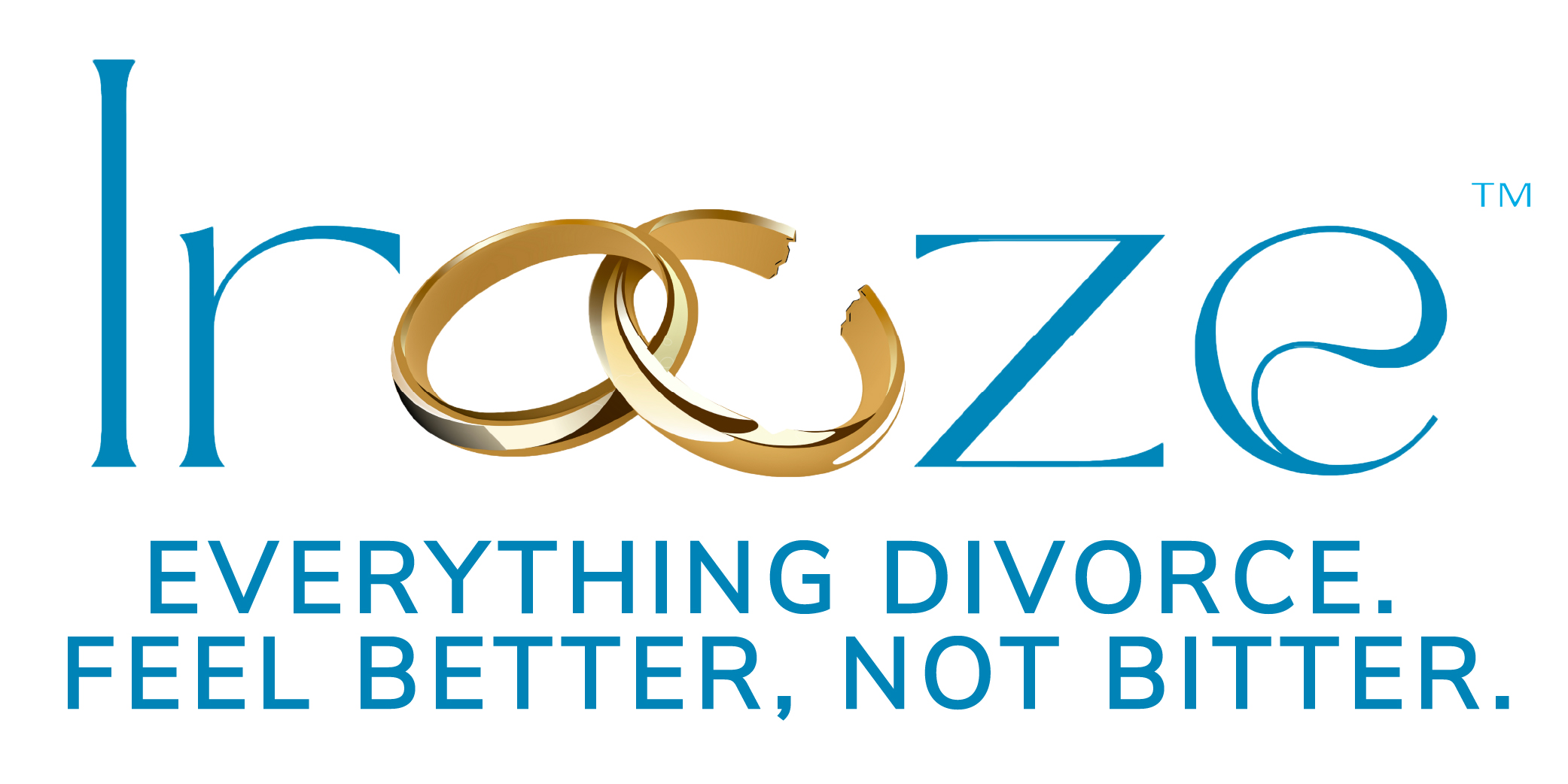The Illusion of Winning and Losing. Facing a difficult divorce? Discover essential tips to ease the transition and navigate the emotional challenges. Read the article for practical advice.
It’s easy to get stuck on specific grievances or feel consumed by the need to “win” the divorce. However, constantly revisiting old hurts or fighting over every detail will only drag out the process and increase your financial burden. A spouse with more money might exploit the legal process to gain an advantage, potentially leading to financial strain on the other spouse.
Common sneaky divorce tactics include hiding assets, manipulating children to gain custody leverage, delaying court procedures to increase legal costs, spreading misinformation, and using emotional blackmail to pressure settlements. Recognizing these red flags early can protect you legally and emotionally.
Navigating the divorce process can feel overwhelming, especially when one spouse manipulates the legal system to gain an advantage. Divorce can feel like a battle, and emotions such as anger, betrayal, and resentment can fuel a desire to come out on top. However, divorce is not about winning or losing, it’s about finding a fair and equitable resolution so that both parties can move forward with their lives. Constantly revisiting old hurts or fighting over every detail will only prolong the process, increase your financial burden, and keep you emotionally tied to a painful chapter of your life.
Step-by-Step Guide to the Divorce Process
Navigating the divorce process can feel overwhelming, but understanding the steps involved can help you manage this challenging journey. It all begins with the filing of a divorce petition, a legal document that outlines the grounds for divorce and what you hope to achieve in terms of child custody, child support, and asset division. Once the petition is filed, the divorce court will review it and schedule a hearing to determine the terms of the divorce.
Having a skilled divorce attorney by your side is crucial. A knowledgeable lawyer can guide you through the legal maze, ensuring your rights are protected and helping you negotiate a fair divorce settlement. If you’re facing a nasty divorce, it’s even more important to have a strong support system, including a Divorce Coach and/or therapist, to help you manage your mental health and ability to cope during this emotionally taxing time.
Some early signs that your spouse may be using toxic tactics include refusing to disclose financial documents, constantly rescheduling mediation or court dates, badmouthing you to mutual friends or family, or using children to pass messages. Recognizing these signs allows you to prepare strategically and emotionally.
Why Trying to ‘Win’ Your Divorce Can Backfire with Expert Insights

Many people enter divorce proceedings with the mindset that they must “win” by securing a better financial settlement, gaining custody of the children, or proving their ex-spouse was in the wrong. Emotional manipulation may also show up as guilt-tripping, gaslighting, or threats to alienate children from you. These subtle yet damaging behaviors can leave you questioning your judgment and increase emotional dependency during negotiations. This mentality can lead to several destructive behaviors, including:
- Fighting Over Every Detail: From who gets the family heirlooms to the division of household items, insisting on “winning” every small battle can add unnecessary tension and hours of legal work.
- Using Children as Leverage: In some divorces, the desire to “win” can extend to custody disputes, where parents might fight for primary custody not out of concern for the children’s welfare, but as a means of gaining control or “winning” the divorce. It is crucial to maintain a positive relationship with the other parent, as negative behavior towards them can have significant repercussions in custody decisions and impact the lessons children learn about relationships and resilience.
- Prolonging Negotiations: The need to be right or come out on top can drag out negotiations, causing the divorce process to take months or even years longer than necessary. Each additional court appearance or negotiation session comes with additional legal fees.
Children are highly sensitive to parental conflict. Sneaky tactics like manipulating a child’s perception of the other parent can lead to long-term emotional distress, anxiety, and even loyalty conflicts. Courts often view such behavior negatively in custody decisions.
Ultimately, this mindset leads to more financial costs, emotional exhaustion, and prolonged stress. The reality is that in divorce, focusing on fairness rather than victory can lead to a more efficient, less painful process—and help both parties achieve emotional closure.
Divorce is one of life’s most emotionally challenging events, and it’s easy to get caught up in a mindset of winning or losing. However, this approach often leads to more emotional distress, financial costs, and prolonged legal battles. Rather than focusing on victory, concentrate on what’s truly important: your future well-being, financial stability, and emotional health. By letting go of the need to win, you give yourself the freedom to heal and move forward. In the end, the true “win” in divorce is not about beating your ex—it’s about reclaiming your life, your peace of mind, and your happiness.
For many, the emotional weight stems from the sudden isolation that follows. Understanding the difference between divorce loneliness and simply being alone can help you process these feelings in a healthier, more empowering way.
Personal Tips to Emotionally Navigate Divorce
- Visualize your post-divorce life: Imagine where you want to be emotionally, financially, and personally in five years. Letting go of short-term frustrations and focusing on your long-term goals will help you stay grounded.
- Practice self-care: Divorce can take a toll on your mental and physical health. Regular exercise, mindfulness practices, and surrounding yourself with supportive friends and family can help you manage stress.
- Know when to let go: Sometimes, the best way to save both money and emotional energy is to let go of the need to be right or to win. Acceptance can lead to quicker resolutions, allowing you to move forward and rebuild your life.
Smart Legal Moves During Divorce
- Create a priority list: Write down the top 5 things that matter most to you in the divorce, whether it’s child custody, the family home, or financial security. Let go of smaller items that don’t align with your priorities.
- Set limits on legal fees: Work with your attorney to create a clear strategy that minimizes back-and-forth negotiations. This can help avoid endless debates that only result in higher bills.
- Don’t sweat the small stuff: Sometimes, letting go of trivial possessions or concessions can expedite the process and save you money in the long run.

Divorce Case Study: Choosing Peace Over Winning
Sarah and Mark, a couple married for over a decade, found themselves locked in a drawn-out divorce battle. Fueled by feelings of betrayal and resentment, both initially entered the divorce with a mindset of “winning.” Sarah was determined to keep the family home at any cost, while Mark focused on gaining primary custody of their two young children. The divorce quickly became contentious, with both sides refusing to compromise on numerous points.
Each insisted on fighting for assets that, in hindsight, were minor—such as certain household items and even the family pet. They spent thousands of dollars on legal fees disputing these details, with their attorneys cautioning them against the ongoing financial toll. However, both Sarah and Mark felt that conceding even small items would mean “losing” to the other.
After months of escalating legal costs and emotional strain, Sarah and Mark were encouraged by a mediator to shift their focus. Together, they revisited their priorities, which included financial stability, a stable home environment for their children, and an amicable co-parenting relationship. Realizing they were exhausting resources in minor battles, they decided to prioritize a fair resolution over victory.
With this new mindset, Sarah and Mark reached a compromise: they agreed to sell the family home and divide the proceeds, and they established a balanced joint custody arrangement focused on their children’s well-being. By letting go of the need to “win,” they finalized their divorce in half the time initially projected, saving themselves tens of thousands of dollars in legal fees. Most importantly, both walked away with peace of mind and a foundation to move forward, co-parenting their children with mutual respect.
Sarah and Mark’s case highlights that true success in divorce isn’t about defeating an ex-spouse. Instead, it’s about aligning decisions with long-term goals, preserving emotional energy, and building a stable, fulfilling post-divorce life. By prioritizing what matters, they discovered the real victory: the freedom to begin again with their children’s happiness and their own well-being at heart.
Why Divorces Get Messy: Common Causes of Conflict

Divorces can become ugly for various reasons, often stemming from deep-seated emotional wounds and practical disagreements. Child custody and child support disputes are common flashpoints, as both parents may have strong, conflicting views on what is best for their children. Financial disagreements, such as how to divide assets or whether one partner should pay alimony, can also fuel a bitter court battle.
In some cases, personal betrayals like multiple affairs can intensify the animosity, making it difficult to reach an amicable resolution. External influences, such as new partners or meddling family members, can further complicate matters, leading to a messy divorce. While celebrity divorces often grab headlines for their high-profile drama, ordinary people can experience equally contentious splits if these issues aren’t managed carefully.
How to Manage Conflict and Communication During Divorce
Effective communication and conflict management are key to navigating a divorce smoothly. Even though your relationship with your ex-partner has ended, maintaining open and honest communication can prevent misunderstandings and reduce tension. This is especially important when discussing sensitive issues like child custody and financial arrangements.
However, if you’re dealing with a nasty divorce, direct communication may be challenging or even counterproductive. In such cases, involving a mediator can be beneficial. A mediator can facilitate discussions, ensuring both parties are heard and helping to negotiate a fair settlement. Prioritizing your mental health is also crucial during this time. Seeking support from a therapist or counselor, practicing self-care, and leaning on supportive friends and family can help you manage the emotional strain.
How to Protect Your Finances and Assets in Divorce
Safeguarding your financial interests during a divorce is essential. This often involves working with a financial advisor or a divorce attorney who can help you navigate the complexities of asset division and child support. A skilled lawyer can assist in negotiating a fair divorce settlement, ensuring that your financial future is secure.
Alimony and child support can be particularly contentious issues. Disagreements over the amount or duration of payments can prolong the divorce process and increase stress. A knowledgeable divorce attorney can help you understand your rights and obligations, advocating for a fair arrangement. Additionally, it’s important to consider the tax implications of your divorce. Consulting with a tax professional can help you navigate the intricate tax laws and avoid any unexpected financial pitfalls.
Financial abuse may also appear when one spouse restricts access to joint accounts, hides assets, or manipulates financial records to distort their obligations. Documenting all financial transactions early on is key to protecting your rights.
Life After Divorce: How to Focus Forward
Amid the turmoil of divorce, it’s vital to keep your eyes on the future. Setting clear goals and priorities can help you navigate this challenging period and emerge stronger. Seeking support from a therapist or counselor can provide the emotional tools needed to cope with the changes and focus on rebuilding your life.
Consider using tools like divorce budgeting spreadsheets, co-parenting apps (e.g., OurFamilyWizard or Coparently), and digital journals to track interactions and agreements. These tools help reduce conflict and create a digital trail that may support your case in court.
Divorce can be a liberating experience, offering a fresh start and new opportunities. Prioritizing your mental health and well-being is crucial during this time. Engage in self-care practices, surround yourself with supportive friends and family, and focus on the positive aspects of your life. Remember, divorce is not the end—it’s a new beginning. With the right support and mindset, you can navigate the complexities of ending a marriage and start building a brighter, more fulfilling future.
Disclaimer
MEDICAL/ PSYCHOLOGICAL/ LEGAL ADVICE DISCLAIMER. The information and content provided herein is for informational and educational purposes only, does not constitute medical or psychological advice, diagnosis, or treatment, and does not establish any kind of patient-client relationship. The information and content provided herein does not, and is not intended to, constitute legal advice. Any information presented is not a substitute for any kind of professional, legal, psychological, health or medical advice, and you should not rely solely on this information. Always consult a qualified professional in the area for your particular needs and circumstances prior to making any professional, legal, health, medical, psychological and financial decisions.
Nothing contained herein should be construed as medical, psychological, legal, or financial advice, and this article is not a substitute for such advice or services. You acknowledge that the content provided herein is not a substitute for professional mental health care or medical care and is not intended to diagnose, treat or cure any mental health or medical conditions. You also understand that Hope Firsel, is not acting as a mental health counselor, medical professional or legal professional.
Hope Firsel STRONGLY RECOMMENDS THAT THOSE SEEKING MEDICAL OR MENTAL HEALTH ADVICE SEE A QUALIFIED PROFESSIONAL IN PERSON. IF YOU ARE THINKING ABOUT SUICIDE, IF YOU FEEL YOU MAY BE A DANGER TO YOURSELF OR OTHERS, OR IF YOU OTHERWISE HAVE ANY MEDICAL EMERGENCY, PLEASE IMMEDIATELY NOTIFY THE POLICE OR EMERGENCY MEDICAL SERVICES IN YOUR AREA. IN THE UNITED STATES, PLEASE DIAL 911.
RESULTS DISCLAIMER. While we may reference certain results, outcomes or situations herein and in connection with Hope Firsel’s Services, you understand and acknowledge that we make no guarantee as to the accuracy of third-party statements made or the likelihood of success for you as a result of these statements. You understand that individual results and outcomes will vary. We cannot guarantee your success merely by your participation in Hope Firsel’s Services or your access, purchase or completion of any material provided relating to the Services, including this article. Any results provided in connection with the Services are not guaranteed or typical





